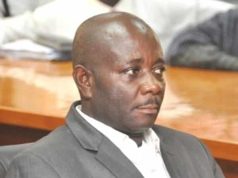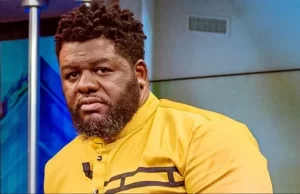In a notable convergence of faith and advocacy, religious leaders from various backgrounds gathered for an impactful two-day dialogue in Kumasi, held at the True Vine Hotel from November 20-21, 2024. Organized by the Center for Democratic Development (CDD-Ghana), the event focused on the contentious Ghanaian Family Values Bill, 2021, which seeks to criminalize LGBTQ+ identities and activities. This gathering aimed not only to discuss the bill’s implications but to explore the broader intersections of faith, morality, and human rights.
The Journey from Silence to Awareness
The dialogue was facilitated by prominent figures like Dr. Michael Augustus Akagbor and William Nyarko, who led discussions aimed at raising awareness about the complexities of the bill and its potential effects on society.
Dr. Akagbor observed a significant trend: many participants were initially unaware of the bill’s specifics, operating under misconceptions influenced by its proponents.
“This dialogue has been pivotal,” he noted. “Many people do not know the actual contents of the bill and speculate based on the proponents’ focus on the sexual aspects without understanding the broader implications.”
His insights revealed a critical gap in understanding that had persisted among attendees, many of whom had not read the bill prior to the dialogue.
After thorough discussions, participants expressed a renewed awareness of the pressing human rights implications.
“There was a noticeable shift in their understanding concerning sexual minorities and the dangers posed by the bill,” Dr. Akagbor remarked, highlighting the transformative nature of the event.
Faith Leaders as Advocates for Justice
The dialogue shifted the narrative for many religious leaders, urging them to reflect on their roles as advocates for justice within their communities. As discussions unfolded, leaders like Bishop Christian Antwi-Bosiako and Evangelist Nana Afua Nsiah Aninkura voiced their concerns over the potential impact of the proposed legislation.
Bishop Antwi-Bosiako emphasized the responsibility of religious figures to protect vulnerable populations.
“We should all rise up and speak against it,” he urged. “Otherwise, we will all be dealt with even if we have good intentions.”
This sentiment resonated deeply among participants, revealing a growing consensus that faith communities have a responsibility to champion human rights and equality for all. Evangelist Nsiah Aninkura reinforced this viewpoint, stating, “The bill is not good at all. It puts everyone at risk,” and urged parliamentarians to reconsider its broader societal implications.
A Call for Compassionate Legislation
Amidst the discussions, concerns about the potential for unjust accusations arose, as expressed by Rhoda Sarpong, a singer and evangelist trainee. She articulated the risks inherent in the legislation, noting that innocuous relationships could be misconstrued as threatening under the bill.
“Maybe you’re just friends living together, and then somebody can just report you to the police that you are lesbians,” she pointed out, calling for a more compassionate approach to legislation that respects human dignity.
Rev. Reindorf Antwi Bosiako echoed these sentiments, stressing that everyone—regardless of their identity—deserves protection under the law.
“Every man or woman, even a child has his or her rights,” he stated. As faith leaders reflected on their moral obligations, the dialogue became a powerful platform for reassessing priorities within religious institutions and their influence on legislative matters.
The Path Forward: Education and Engagement
With the dialogue coming to a close, participants left with a shared commitment to elevate the conversation around human rights within their communities.
The gathering marked a pivotal moment in which religious leaders began to recognize the power of their voices in advocating for social justice.
Ongoing engagement and education emerged as vital components for fostering a culture of inclusivity.
“This dialogue is just the beginning,” William Nyarko emphasized, advocating for continued discussions on human rights and legislative impacts.
“We must keep educating ourselves and our communities about the implications of such laws and ensure that we protect the rights of all people.”
As the conversations around human rights evolve in Ghana, it is clear that faith leaders can play a transformative role. By embracing their responsibilities as advocates for justice, they can help shape a more equitable society—one where everyone, regardless of their sexual orientation, can feel safe and respected.
The Kumasi dialogue not only illuminated critical human rights issues but also paved the way for a new era of compassionate leadership within religious communities.
Source: Joseph Kobla Wemakor

















